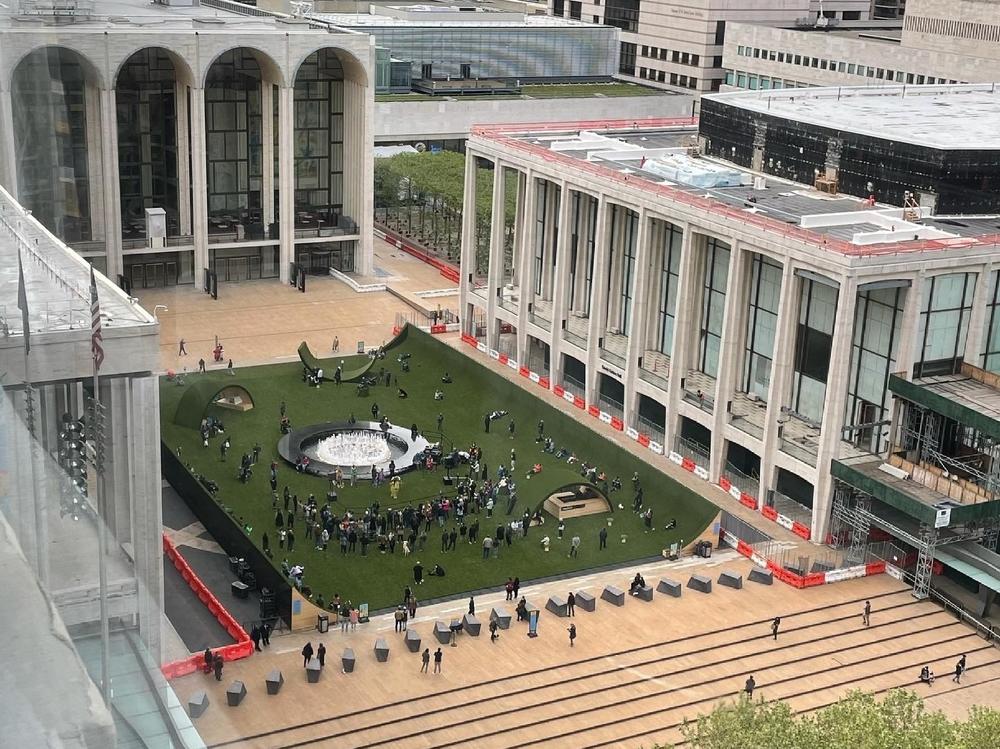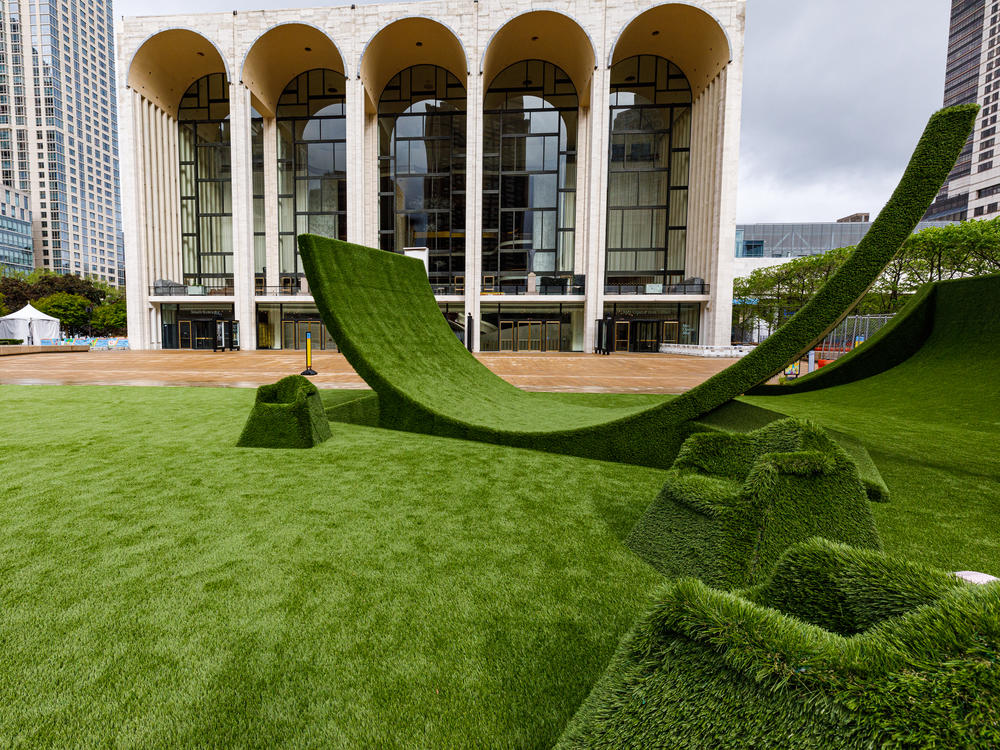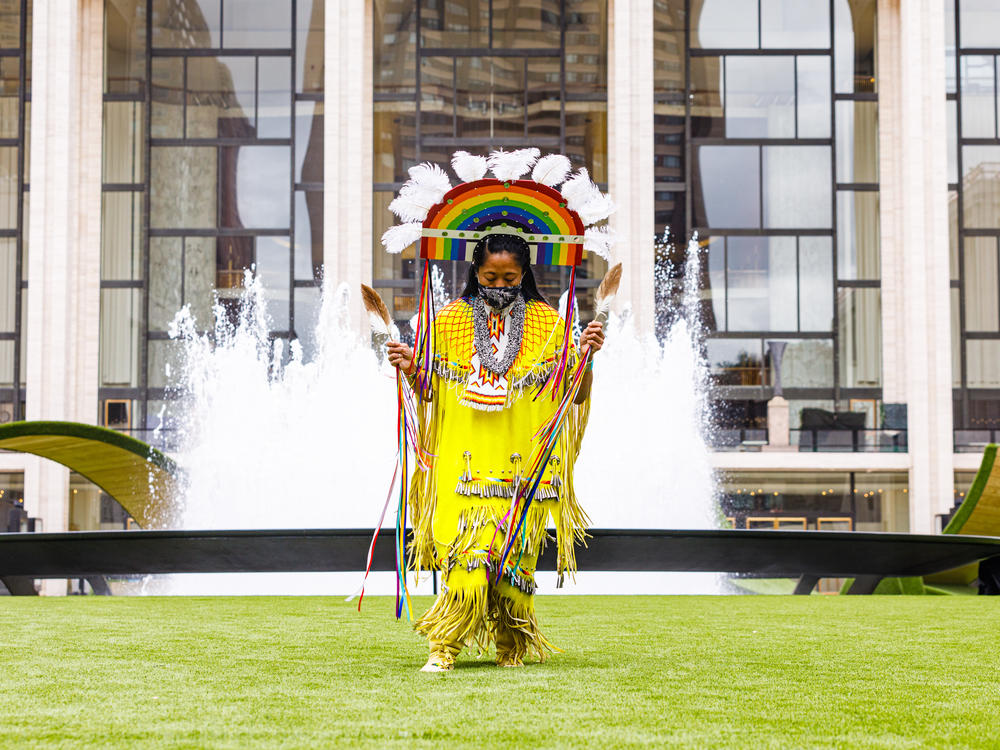Section Branding
Header Content
A Transformed Lincoln Center In New York City Brings Back Live Audiences
Primary Content
The performing arts are coming back and arts organizations around the country are having to think about how to reengage with live audiences, in a safe way.
After being dark since March of 2020, New York's Lincoln Center welcomed audiences back Monday — to its radically transformed physical space, one that is also more inviting and inclusive.
"One of my favorite times at Lincoln Center, actually, is just before curtain comes up and just after it comes down on campus," says Henry Timms, Lincoln Center's president. "And you just have this moment where the campus is completely full of people. And one of the many, many things, you know, we miss at Lincoln Center, is that feeling of community, that sense of connection.
Before the pandemic shut everything down, Lincoln Center attracted 6 million visitors a year. So, in hopes of bringing the community back, the performing arts complex is creating something called Restart Stages.
Timms says they pondered: "Could we create an outdoor performing arts center, a temporary performing arts center, just for this spring and this summer, to then help organizations at Lincoln Center and across the city start rehearsing again, start performing again, and to give our audiences a kind of safe on ramp to coming back to the arts?"
Ten stages are being built on the 16-acre campus, for performances and rehearsals, as well as high school graduations and blood drives. But the biggest transformation will be of the central plaza, in front of the marble clad homes of the Metropolitan Opera, New York City Ballet and the New York Philharmonic, made famous in movies like Moonstruck.
"One of the things that I have noticed when working here at the theaters is that there is nowhere to sit on this plaza," says Mimi Lien, a Tony and MacArthur Award-winning set designer.
So, she's creating a kind of a village green. She says that while she had hoped to cover the plaza with real grass, it proved impractical, so she's using an environmentally responsible artificial turf. Most of the surface is flat, but there's a slope on each side of the plaza — it looks like a half pipe — that people can sit on.
"Yesterday when I was here, testing out the slope, I was overtaken by the childhood urge to just roll down the slope," she says.
Lien hopes that people will hang out in the plaza — "get a coffee and some food at the cafe, sit in a chair or on the grass. Check out a book from the library corner. Perhaps take in a pop-up performance. I would love for it to be a multifaceted civic space."
And that's what Lincoln Center is aiming for — appealing not just to the people who can afford $300 to go to the opera, but to those who just want to spend some time outside and perhaps catch a performance of a group not usually seen on one of the main stages, such as the Korean Cultural Alliance or Harlem Week or the Redhawk Native Arts Council.
Cliff Matias, director of the Redhawk Native Arts Council, says members of the Ramapough Lunaape will open Restart Stages with a land acknowledgement. "We're going to share a mixture of indigenous performances from across the hemisphere and, you know, we always do drumming and singing and rattle songs as well. Just an opportunity to come and share and celebrate after such a long time," he adds.
Timms says the pause on activities, with both COVID and calls for social justice, has made the people running Lincoln Center, and other arts organizations around the country, question their core mission.
"We never wanted this period to be a period where we would just pause and then come back as the same organization who we were," he says. "How is it we are coming back differently? Who's on our stages and how are we engaging with broader communities and what are we saying to the world? All those questions are obviously critical."
Copyright 2021 NPR. To see more, visit https://www.npr.org.



